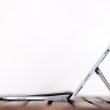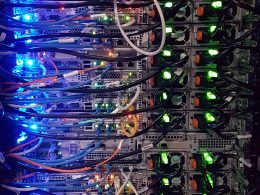HSBC, one of the largest banking and financial services organizations in the world, has recently announced a $2bn buyback plan that aims to return excess capital to its shareholders. This news has caused quite a stir among investors who are eagerly anticipating what this means for their investments. In this blog post, we’ll delve into the reasons behind HSBC’s decision to buy back shares, analyze how it could affect both current and potential shareholders, take a brief look into HSBC’s history, and ultimately determine whether or not this is good news for the bank. So sit tight as we explore HSBC’s latest move!
HSBC announces $2bn share buyback
HSBC’s decision to buy back $2bn in shares is a strategic move aimed at returning excess capital to shareholders. The bank cited its strong financial position and continued growth as the reason for this decision.
This isn’t the first time HSBC has embarked on such an initiative. In 2018, they announced a $5.5bn share buyback program that was completed ahead of schedule. This latest move indicates that the bank remains committed to rewarding its investors while maintaining a healthy balance sheet.
The timing of this announcement is also significant given the current economic climate, which has been impacted by ongoing uncertainties brought about by COVID-19 pandemic. Despite these challenges, HSBC has remained resilient and continues to show faith in its long-term prospects.
This news is likely to be welcomed by shareholders who stand to benefit from increased earnings per share and potentially higher dividends as a result of the reduced number of outstanding shares.
Reasons for the buyback
The $2bn share buyback announced by HSBC is not an uncommon move for large corporations. It is a way to return value to shareholders who have invested in the company, and also to improve the bank’s financial metrics.
One of the primary reasons for this buyback is that HSBC has excess capital on its balance sheet. By repurchasing shares, it can reduce the number of outstanding shares and increase earnings per share (EPS). This will make each individual share more valuable and attractive to investors.
Another reason behind this decision could be to please shareholders after a period of underperformance from the bank. The pandemic hit HSBC hard last year, causing its profits to fall significantly. The buyback could be seen as a way of showing investors that management is committed to improving shareholder returns.
Furthermore, with interest rates at historical lows, investing in one’s own stock may prove more profitable than keeping cash reserves or making other investments. Additionally, buying back shares signals confidence in future performance and demonstrates that management sees their stock as undervalued.
While there are several potential reasons why HSBC would undertake such a significant share buyback program at this time; ultimately only time will tell whether it was worth it for both current shareholders and those considering investing in them moving forward.
What this means for shareholders
For shareholders of HSBC, the announcement of a $2bn share buyback is certainly good news. The buyback will allow existing shareholders to sell their shares back to the bank at a premium price, which can be seen as a way for the bank to return money to its investors.
This move by HSBC may also increase investor confidence in the company’s future prospects and financial stability. By reducing the number of outstanding shares through this buyback program, it could potentially boost earnings per share and help drive up stock prices in the long run.
However, it’s worth noting that not all shareholders will benefit equally from this announcement. Those who hold more shares are likely to see bigger gains than those with smaller holdings. Additionally, there is always some level of risk involved when investing in any publicly-traded company, so it’s important for potential investors to do their own research before making any decisions.
Though, this buyback program is one way for HSBC to reward its loyal investors while also improving its financial position moving forward.
How this affects the bank’s stock price
The announcement of HSBC’s $2bn share buyback has had a significant impact on the bank’s stock price. The news caused the bank’s shares to jump more than 4% in early trading, which is not surprising given that investors often react positively to share buybacks.
One reason for this reaction is that share buybacks can signal confidence from the company’s management about its future prospects. By repurchasing shares, HSBC may be indicating that it believes its stock is undervalued and that it expects better performance in the future. This positive outlook can increase investor confidence and drive up demand for shares.
Another factor contributing to the rise in HSBC’s stock price could be increased demand from investors looking for stable investments during times of economic uncertainty. As one of the world’s largest banks with a strong track record of financial stability, many investors see HSBC as a safe bet during volatile markets.
An increase in shareholder value resulting from a share buyback can also attract new investors and boost overall market sentiment towards the company. All these factors combined may have contributed to the jump in HSBC’s share price following their recent announcement.
While there are no guarantees when it comes to investing, HSBC’s decision to initiate a $2bn buyback appears to have generated optimism among shareholders and potential investors alike.
HSBC’s history
HSBC, which stands for Hong Kong and Shanghai Banking Corporation, was founded in 1865. The bank was established to finance trade between China and Europe, during a time when international commerce was rapidly expanding.
The bank’s first office opened in Hong Kong, where it quickly became the leading financial institution. By the early 20th century, HSBC had expanded into other parts of Asia and had established its headquarters in London.
Throughout its history, HSBC has weathered many challenges including wars and economic downturns. Despite these obstacles, the bank continued to grow and develop new services such as online banking.
In recent years, HSBC has faced increased regulatory scrutiny due to money laundering allegations. However, the bank has taken steps to address these concerns by strengthening its compliance procedures.
Today, HSBC is one of the largest banks in the world with operations spanning across Asia-Pacific region as well as Europe and North America. It continues to innovate through technology while maintaining its commitment to serving customers around the globe.
Conclusion
HSBC’s announcement of a $2bn share buyback is great news for shareholders and investors. The move demonstrates the bank’s confidence in its financial position and future prospects. Given that the buyback represents around 1% of HSBC’s market capitalization, it is clear that management believes investing in its own shares is an attractive use of capital.
Moreover, with interest rates remaining low across many major markets, banks are looking to find ways to boost shareholder returns beyond traditional dividends or stock price appreciation. Share buybacks have become increasingly popular among big banks as a way to distribute excess cash while signaling confidence in their long-term outlook.
HSBC has already been one of the strongest performers among European banking stocks this year, boosted by the bank’s focus on Asia and emerging markets where growth prospects remain strong. With today’s announcement, HSBC shares jumped over 4%, reflecting investor enthusiasm for the bank’s plans to return more cash to shareholders.
Despite ongoing economic uncertainty due to COVID-19 pandemic and other global challenges facing international companies like HSBC, this latest step shows how well-managed banks can continue to generate value for shareholders while navigating turbulent times.











